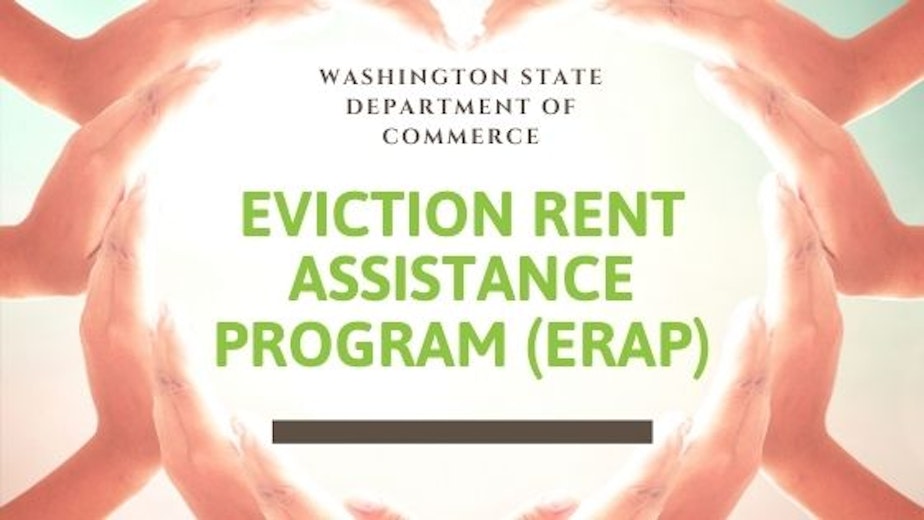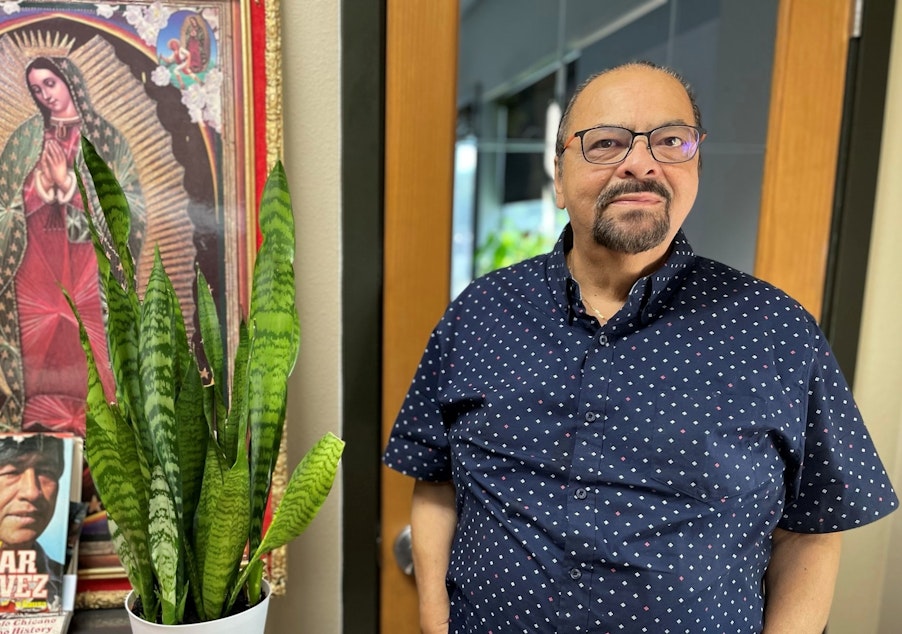Federal rental assistance dollars can prevent evictions — if you can navigate the process

The national moratorium on evictions ended over the weekend. As a result, many experts are predicting an incoming wave of evictions. But here in Washington, renters still have some significant protections, like the moratorium "bridge" that kicked in yesterday. Now through the end of September, tenants cannot be evicted if they're actively seeking rental assistance.
KUOW's Joshua McNichols told Paige Browning how renters can access that help, and which state protections are still in place.
This interview has been edited for clarity.
Joshua McNichols: As of Aug. 1, tenants are expected to do one of three things: Either they start paying their full rent, or they start paying reduced rent negotiated with the landlord through a dispute resolution service that the state is testing out — or they have to be actively seeking financial help from the state.
The state has received a lot of money over the pandemic from the federal government. That money is there to help renters pay off their unpaid rent. But you can't just be passive here, renters have to take an active role in chasing that money.
Paige Browning: How do they get that money? What do renters do?
They have to apply. If their application is accepted, then the money will go to their landlords, which helps prevent them from being evicted. The money is actually distributed through the counties, so you want to start with your county's website to avoid any fraudulent sites.
Sponsored
Washington state keeps a list of those county websites, which you can reach through the State Department of Commerce. You have to drill down a little bit to find the list, but it's there for you.
Or you can call 211, which is a statewide phone number, but you might have to wait on hold a long time to get somebody there.
Once an application is submitted, what can a renter expect?
Next, your information is passed along to a community organization that actually processes your application. I visited one called Mi Centro, in Tacoma, to check out what that process looks like. I learned that it's a pretty complicated process. Renters have to submit a whole bunch of forms, documenting their income, and their rental agreements. But the experts at these community organizations are there to help walk people through it.
At Mi Centro, Jennifer Ochoa told me it's been hard for a lot of renters to jump through those hoops:
Sponsored
“Sometimes the tenants, since they don't have money to pay their rent, it’s most likely that they don't have money to pay for a phone service.”

Or internet service, and this process requires renters to upload a bunch of documents, so that can be hard. Maybe they're older, too, and they don't understand how to use the internet very well. On the day I visited, the staff at Mi Centro were celebrating because they had just heard from a tenant that they'd been trying to get ahold of for a week and a half to tell her that her rent will be paid, but because she didn't have internet or phone service, it was really hard for them to reach her and tell her that good news.
How long does the process take from application to getting rent relief in hand?
It varies by county. In Pierce County, the process currently takes an average of 74 days.
Sponsored
Why does that take so long, and couldn't they just staff up to help process the paperwork faster?
It's hard to find people to hire right now. In a lot of cases, it sounds like organizations don't get the money upfront to hire people. They have to spend the money, and then they bill the county for reimbursement. Bernal Baca is the executive director of Mi Centro. He says that process is really holding them back:
“Give us the money. Don't make us do what you're doing to these poor people: ‘Jump through the hoop. Fill out the form. Oh, you don't have staff.’ How do I hire a staff if we don't have the money in our bankroll to hire staff?”

I've also read that some states may actually lose out on some of the federal relief money that they're getting, because they're not spending it before deadlines. Could that happen in Washington?
Sponsored
It could happen. I think they're talking about deadlines that are written in the federal law, basically strings attached to the federal money. I hear from Washington state officials that they won't have that problem here, because they believe that they're going to spend the money before the federal deadlines.
Looking at how much the state has spent so far, it's not obvious to me that they'll achieve that goal. The counties have to spend a certain amount in the next couple of months in order for the state to qualify for at least some of that federal aid, and in King County, the county has to quadruple the pace at which it's processing its applications, which it says it can and will do, but we'll see.
Listen to the interview by clicking the play button above.





